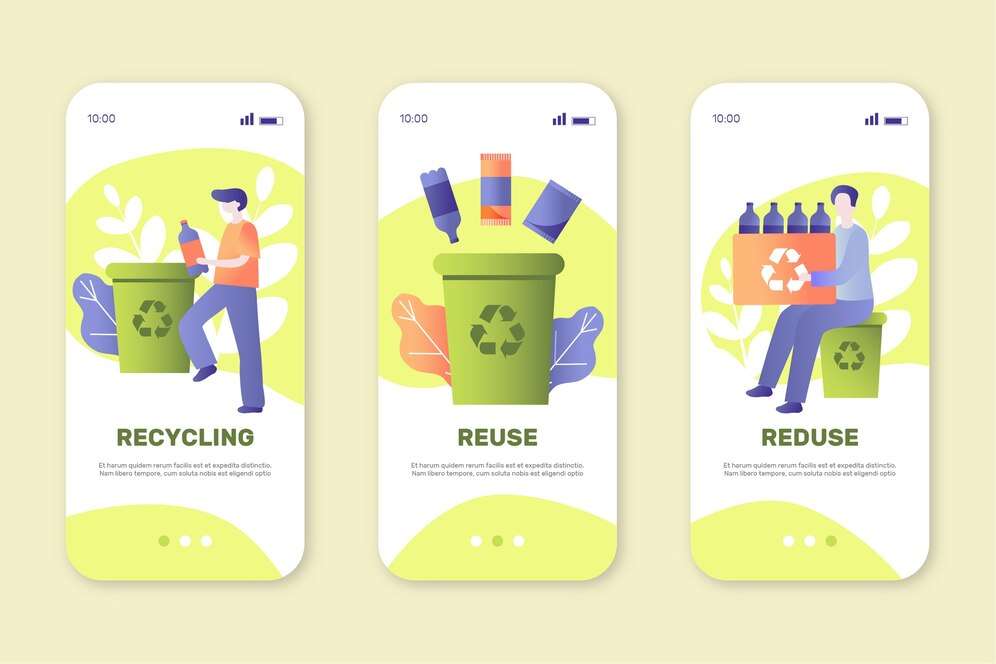How Efficient Commercial Bin Collection Boosts Business Sustainability

In today’s business landscape, sustainability is more than just a buzzword—it’s a critical aspect of corporate responsibility and long-term success. For businesses of all sizes, managing waste effectively is a key component of their sustainability strategies. Efficient commercial bin collection plays a crucial role in this process, helping businesses minimize environmental impact, reduce costs, and streamline operations. This blog explores how optimizing commercial bin collection can boost business sustainability and contribute to a greener future.

The Importance of Efficient Commercial Bin Collection
Commercial bin collection involves the regular collection and disposal of waste generated by businesses. This process is not just about keeping premises clean but is integral to effective waste management and sustainability practices. Inefficient waste collection can lead to overflowing bins, increased carbon emissions from multiple collection trips, and a greater amount of waste ending up in landfills. On the other hand, efficient bin collection systems can drastically reduce these negative outcomes and provide numerous benefits for businesses.
Environmental Impact: Reducing Carbon Footprint
One of the most significant benefits of efficient commercial bin collection is the reduction in carbon emissions. Traditional waste collection methods often involve unnecessary trips due to inefficient routing or over-servicing certain locations. This results in higher fuel consumption and increased carbon emissions.
By implementing smart technology such as route optimization software, businesses can ensure that waste collection trucks follow the most efficient paths, reducing the number of trips needed. Additionally, using sensors in bins to monitor fill levels can prevent unnecessary collections when bins are not full. This technology-driven approach not only cuts down on fuel use but also minimizes the overall carbon footprint of the waste collection process.
Economic Benefits: Lower Operational Costs
Efficient commercial bin collection also leads to significant cost savings. Traditional waste collection services often charge businesses based on the number of pickups rather than the actual amount of waste collected. This can result in businesses paying for unnecessary services.
By optimizing the bin collection schedule to match actual waste generation patterns, businesses can reduce the frequency of collections and, consequently, the costs associated with them. Smart bins equipped with sensors that notify the waste management service when they’re nearly full can help businesses avoid overpaying for under-filled bins. These savings can then be redirected toward other sustainability initiatives or core business activities.
Improved Resource Management
Efficient commercial bin collection contributes to better resource management by ensuring that waste is properly sorted, recycled, or disposed of. Many businesses struggle with waste segregation, leading to recyclable materials being sent to landfills. This not only wastes valuable resources but also increases disposal costs.
Implementing a well-organized collection system that includes clearly labeled bins for different types of waste—such as recyclables, organic waste, and general waste—can greatly improve recycling rates. Additionally, regular staff training on waste segregation practices can ensure that employees are aware of the importance of proper waste disposal. With the right collection system in place, businesses can maximize resource recovery and reduce the amount of waste sent to landfills, further enhancing their sustainability efforts.
Enhancing Corporate Reputation and Compliance
Sustainability is increasingly becoming a priority for consumers, investors, and regulatory bodies. Businesses that demonstrate a commitment to sustainable practices, including efficient commercial bin collection, are more likely to attract environmentally conscious customers and investors. Furthermore, adhering to waste management regulations is critical for avoiding fines and maintaining a positive corporate image.
By adopting efficient waste collection practices, businesses can showcase their commitment to environmental responsibility. This not only helps in building a strong corporate reputation but also ensures compliance with local and national waste management regulations. A robust sustainability profile can be a powerful differentiator in the marketplace, leading to increased customer loyalty and long-term business success.
Leveraging Technology for Smarter Bin Collection
The integration of technology in commercial bin collection is transforming the way businesses manage waste. Innovations such as smart bins, automated waste tracking, and data analytics provide businesses with actionable insights to optimize their waste management processes.
1. Smart Bins and Sensors: Smart bins equipped with sensors can monitor waste levels in real-time. These sensors send alerts to the waste collection service when bins are nearly full, allowing for timely pickups. This prevents overflowing bins, reduces the need for multiple collection trips, and ensures that waste is collected only when necessary.
2. Automated Routing: Route optimization software analyzes traffic patterns, waste generation data, and bin locations to determine the most efficient routes for waste collection trucks. This not only saves time and fuel but also reduces wear and tear on vehicles, further cutting down operational costs.
3. Data Analytics: By collecting and analyzing data from waste collection processes, businesses can gain insights into waste generation patterns, identify areas for improvement, and make informed decisions about waste management. For example, data analytics can help businesses determine the ideal frequency of bin collections, optimize bin placement, and identify opportunities for waste reduction.
Conclusion: A Path to Sustainable Business Practices
Efficient commercial bin collection is more than just a logistical necessity—it’s a vital part of a business’s sustainability strategy. By reducing carbon emissions, lowering operational costs, improving resource management, and enhancing corporate reputation, businesses can achieve significant benefits from optimizing their bin collection processes.
As sustainability continues to gain importance in the business world, companies that prioritize efficient waste management will be better positioned to meet regulatory requirements, satisfy customer expectations, and contribute to a greener future. Investing in smart waste collection technologies and practices is not just an operational decision; it’s a strategic move toward long-term success and environmental stewardship.